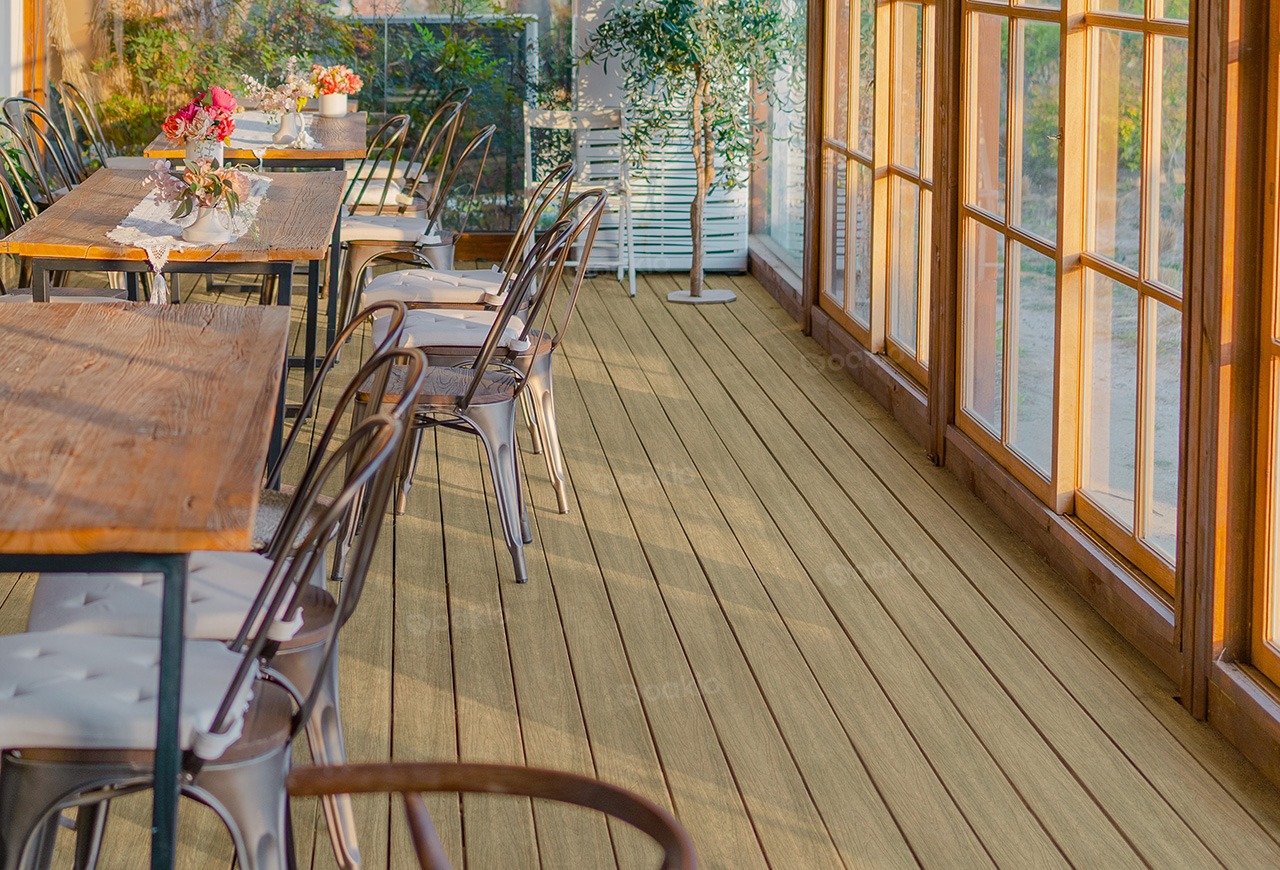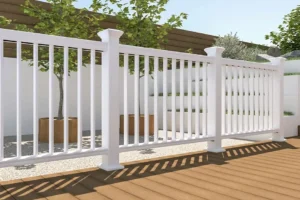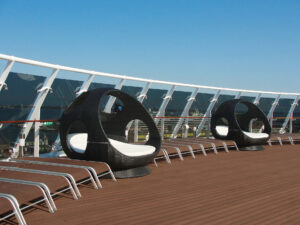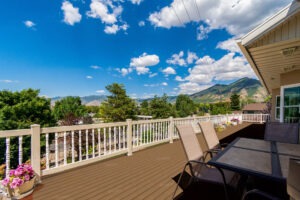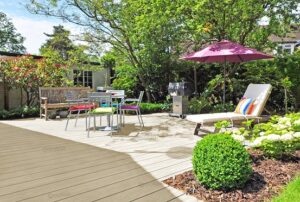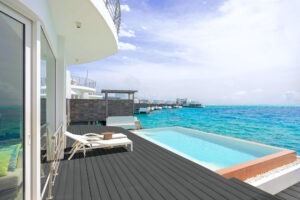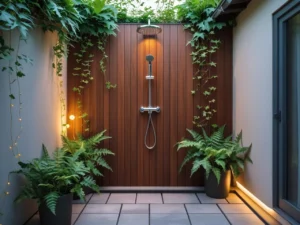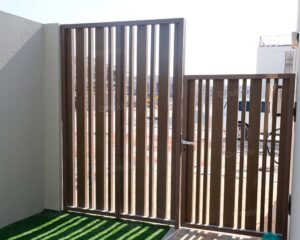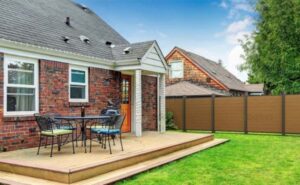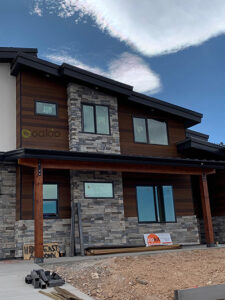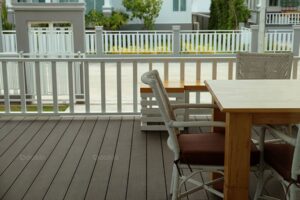The 2025 DIY Enthusiast’s Guide to WPC Deck Flooring
Eyeing a backyard upgrade? You’ve probably stumbled across WPC deck flooring, and for good reason. Short for wood-plastic composite, this material combines the warmth of wood with the toughness of plastic, creating a deck surface that is stylish, eco-conscious, and built to withstand the elements.
Unlike traditional wood, it won’t rot, splinter, or fall victim to pests, and it requires far less upkeep than you’d expect. Even better, it’s surprisingly manageable to cut, drill, and install with basic tools.
In this guide, we will cover the essentials: planning your project, cutting and drilling boards, step-by-step installation tips, maintenance, and why WPC makes sense for eco-minded DIYers in 2025.
Understanding WPC Deck Flooring
Before jumping into installation, it helps to understand what WPC deck flooring actually is. It’s made by combining recycled wood fibers with plastics, giving you the warm look of timber but with the toughness of a synthetic material.
WPC won’t corrode the way traditional decking can. It’s built for the outdoors, resisting both harsh weather and the everyday wear of family life. If you’d like to dive deeper into the pros and cons, check out this overview on the advantages and disadvantages of WPC.
Do keep in mind that appearance and lifespan vary depending on the brand and style, so choosing a trusted supplier is crucial for achieving long-lasting results. Wondering where to buy WPC flooring that you can rely on for years to come? Oakio’s decking products are wonderfully durable and stylish options.
The WPC Guide for DIY Enthusiasts
Planning Your WPC Decking Project
Start by taking a close look at your outdoor space. Measure carefully, as double-checking lengths and widths can save you from costly mistakes later. Sketching a rough layout on paper (or even using a simple design app) will help you visualize the finished deck.
Once your space is mapped out, choose your boards. WPC comes in a variety of colors, textures, and finishes, so think about what will complement your home’s style. Don’t forget accessories like fasteners and trim pieces, since these small details tie everything together.
You will also want the right tools on hand. A circular saw handles cuts cleanly, while drills and corrosion-resistant screws secure the boards. Add gloves, goggles, and ear protection as well, because safety gear is just as important.
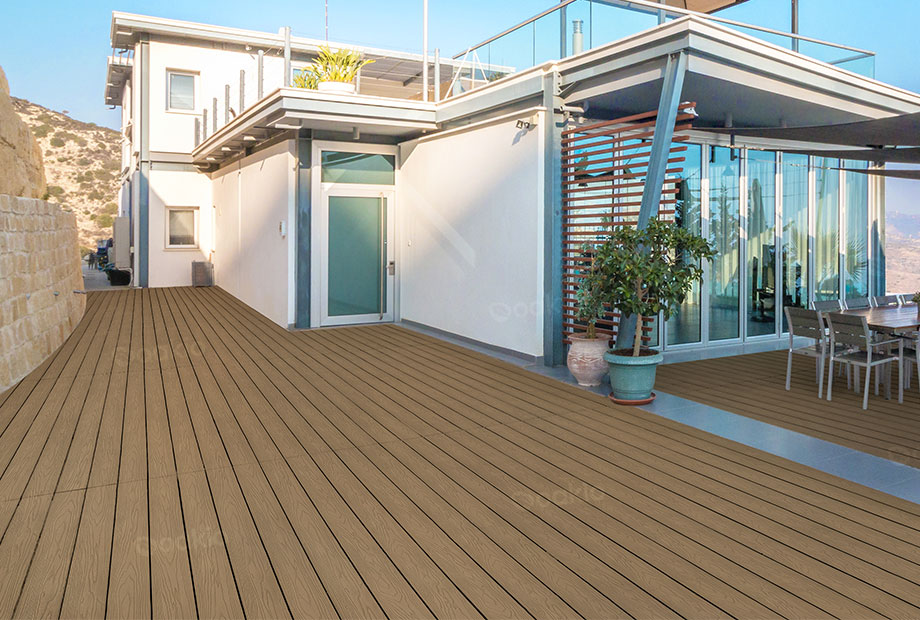
Cutting and Drilling WPC Deck Boards
If you’ve yet to learn how to cut WPC flooring, the secret is actually in the tools and your pace. A sharp blade on a circular saw gives the neatest results, so avoid using dull or worn blades. Cut slowly and steadily, as rushing can leave rough edges.
On to drilling: to prevent cracking, start with a pilot hole before driving screws in. Keep your drill speed moderate rather than maxed out, since too much speed can create heat and stress the board. This simple step keeps the material intact and extends its lifespan.
Edge care matters, too. Always support boards while cutting to avoid splintering, and sand lightly if needed for a smooth finish. Also, WPC dust can build up quickly, so have a shop vac or broom handy.
Handling and Installing WPC Deck Flooring
Knowing how to install WPC flooring correctly is of utmost importance. Start by laying your boards on a level, well-prepared substructure. Leave consistent gaps between each plank. This allows for expansion when the weather changes. Check alignment often, since even a small misstep early on can throw off the whole layout.
Fastening is the next big decision. Hidden fasteners give your deck a clean, seamless look, but screws provide extra grip and can be easier for beginners to manage. Think about what matters more to you: appearance or convenience.
Don’t forget the tricky spots, like stairs, corners, and railings. These often require precise cuts and patience, so measure twice before committing.
And if problems crop up, like boards not sitting flush or screws stripping, don’t panic. Adjust spacing, re-drill pilot holes, or swap in better hardware. Troubleshooting is part of the DIY process.
Maintenance and Long-Term Care of WPC Flooring
Keeping your deck looking fresh doesn’t take much effort. A quick sweep and the occasional wash with mild detergent are usually all it needs. Regular upkeep keeps dirt from settling in and dulling the surface.
Avoid anything too harsh. Strong chemicals can damage the finish, and sharp tools may scratch the boards. Stick to soft brushes and gentle cleaners to protect your deck’s appearance.
Got a scratch or stain? Don’t stress. Minor marks can often be buffed out, and most stains lift easily with a little soap and water. The key is catching them early before they set.
Each season, take a moment to look over your deck. Check that boards are still secure, and inspect fasteners to ensure nothing has loosened over time. Small adjustments now can save you bigger repairs later.
With proper care, WPC decking can last for many years. But if you ever spot larger issues, like deep cracks, warping, or structural concerns, it may be time to call in a professional for inspection.
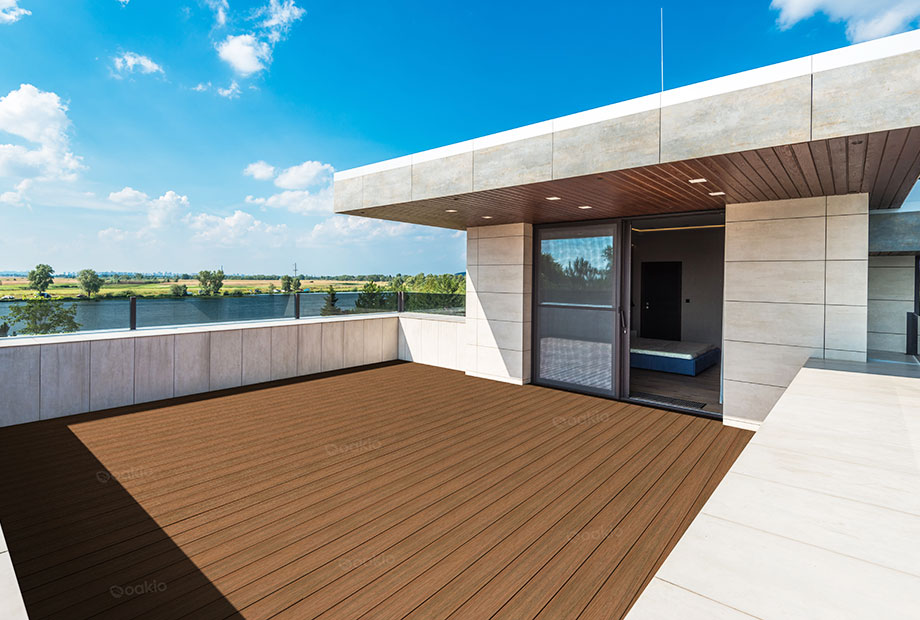
Eco-Friendly and Practical Benefits for DIYers
One of the biggest wins with WPC is its sustainability. Many boards are made with recycled materials, which gives waste products new life and helps cut down on environmental impact.
It’s also cost-effective in the long run. While the upfront price can be higher than wood, WPC’s durability means fewer repairs, replacements, and maintenance costs. You save both time and money over the years.
On top of that, WPC is naturally resistant to environmental wear. It won’t crack the way traditional lumber might. That kind of resilience makes it a smart long-term investment.
Conclusion
If you’re a DIYer in 2025, WPC deck flooring checks all the right boxes. It is durable, eco-friendly, and practical, making it one of the smartest choices for building a deck that lasts.
With the right preparation and a little patience, there’s no reason you can’t take this project on yourself. This guide has given you the confidence to plan, install, and care for your deck.
So, gather your tools, map out your design, and start creating the deck you’ve been imagining. And don’t forget to visit Oakio’s website to explore the options that can bring your outdoor space to life.
Trending Reading
What Are the Differences Between the WPC Board and PVC Board?
[2025 Update] How Long Does WPC Decking Last?
